 This is the fifth in a series of posts on Booby Traps™ during pregnancy, made possible by the generous support of Motherlove Herbal Company.
This is the fifth in a series of posts on Booby Traps™ during pregnancy, made possible by the generous support of Motherlove Herbal Company.
Today’s post is written by Alison Stuebe, MD, MSc. Alison is an assistant professor of Maternal-Fetal Medicine and Maternal-Child Health at the University of North Carolina School of Medicine, where she maintains a web site for clinicians on breastfeeding management. She is the author of a number of studies on breastfeeding and its relationship to breast cancer and heart disease. She is member of the board of the Academy of Breastfeeding Medicine and a regular contributor to the Breastfeeding Medicine Blog.
A major Booby Trap™ in doctor’s offices stems from a simple – and obvious — fact: The breast is not the same as the placenta.
If you’ve seen a placenta (or have even the vaguest notion of what one looks like), this is not surprising information. The placenta is the caterer for your baby’s nine months in the womb. It’s about the width of a dinner plate, purple, and covered with blood vessels that ultimately coalesce into the umbilical cord. In other words, if your breast looks like a placenta, you have a serious problem.
Nevertheless, when it comes to what medications are safe in breastfeeding, many health care providers think the placenta and the breast are interchangeable. Clinicians routinely tell mothers not to take certain drugs during breastfeeding because they cause problems during pregnancy. Conversely, drugs that are okay for pregnancy can cause problems for a nursing mom.
For example, ACE inhibitors are a type of drug commonly used to treat high blood pressure. During pregnancy, they can cause serious problems for the baby’s kidneys, and they are never given to expecting moms. But the drug enalapril, which is an ACE inhibitor, is considered “usually compatible with breastfeeding,” by the American Academy of Pediatrics. The reason is that while the placenta delivers this drug directly to the developing baby’s kidneys, the breast lets very little into milk – the estimated exposure to the baby is less than 0.2% of a therapeutic dose.
I did not learn this in medical school, however. I learned it when I was a resident and was talking to a laboring mom about her infant feeding plans. She told me, “I wanted to breastfeed, but I can’t because of my blood pressure medication.” My first thought was, “Of course, because you can’t take ACE inhibitors during pregnancy.” But I looked it up – and went back to tell this mom, now 7 centimeters dilated in active labor, that she could breastfeed after all. Needless to say, this was not an ideal time or place to change one’s infant feeding plans.
To make matters worse, many of the resources that physicians and pharmacists turn to for information drug safety in lactation are wrong. Monica Akus and Melissa Bartick looked at this issue in a paper published in 2007 . They looked up the safety recommendations for 14 drugs commonly prescribed for young women. Two resources stood out as high-quality references: Dr. Thomas Hale’s book, Medications and Mother’s Milk, and LactMed, the National Library of Medicine’s lactation safety database . Both resources found that 12 of the 14 drugs Akus and Bartick reviewed were generally safe during breastfeeding. By contrast, Lexi-Comp and First DataBank, two resources commonly used by pharmacies, rated only 1 or 2 of the drugs as safe in breastfeeding.
So let’s think about this Booby Trap™: A provider writes a prescription for a drug that’s okay to use during breastfeeding, and you go to pick it up in your pharmacy. Based on this study, ¾ of the time, you’ll be told – incorrectly – that you need to wean or express and discard your milk, or risk endangering your baby.
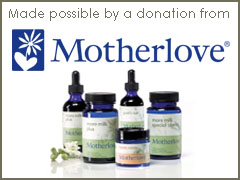 There’s a more subtle distinction that’s also often lost on medical providers. If the data on a drug’s safety profile is even slightly ambiguous, the standard advice is to “play it safe” and formula feed the baby. In the eyes of many clinicians, formula is a-OK, whereas breast milk with the possibility of medication exposure is risky. Such an approach discounts the well-documented risks of formula feeding for both mother and infant, and doesn’t take into account the mother’s own preferences about which risk is more concerning to her and her family. In fact, the family needs to weigh the risks of medication exposure against the risks of not breastfeeding. There is no “play it safe” option.
There’s a more subtle distinction that’s also often lost on medical providers. If the data on a drug’s safety profile is even slightly ambiguous, the standard advice is to “play it safe” and formula feed the baby. In the eyes of many clinicians, formula is a-OK, whereas breast milk with the possibility of medication exposure is risky. Such an approach discounts the well-documented risks of formula feeding for both mother and infant, and doesn’t take into account the mother’s own preferences about which risk is more concerning to her and her family. In fact, the family needs to weigh the risks of medication exposure against the risks of not breastfeeding. There is no “play it safe” option.
The reverse problem can also occur, when providers incorrectly advise that there’s no down side to a medication during breastfeeding. For example, consider pseudoephedrine, a common component of over-the-counter cold medicine that is considered OK in pregnancy after the first trimester. A 2003 study found that a single, 60 mg dose of pseudoephedrine cut a woman’s milk production over 24 hours by 25% — from an average of 26 to 21 ounces. Yet the OB textbook, “Drugs in Pregnancy and Lactation,” summarizes the data on pseudoephedrine as “Limited Human Data – Probably Compatible” with breastfeeding.
So what’s a mom to do? Hopefully, your provider is knowledgeable and will look up medications on LactMed, Dr. Hale’s Medications and Mother’s Milk, or call Dr. Hale’s new Infant Risk Center free information line before making a recommendation. But before you fill a prescription or take an over-the-counter medication, you may want to look it up yourself. You can call Dr. Hale’s Infant Risk Center, and you could also bring the printed-out information from LactMed to your provider (and to your baby’s provider) and gently educate them about where to find high-quality information on drug safety in lactation.
Meanwhile, I get to meet with all the third-year medical students at UNC during their Obstetrics rotation, and I am making sure they all learn that the breast and the placenta are not the same organ.
Have you received any bad medication advice from your physician or pharmacist? If so, how did you handle it? Success strategies are welcome!



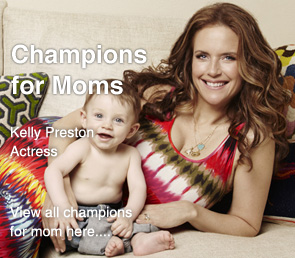
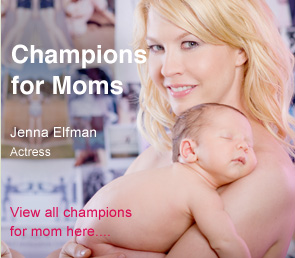

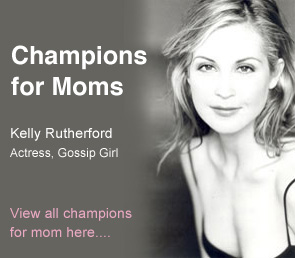
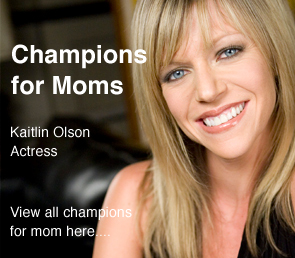
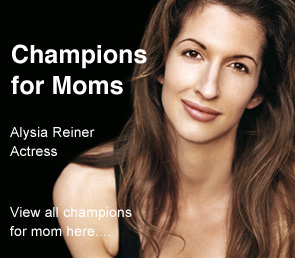
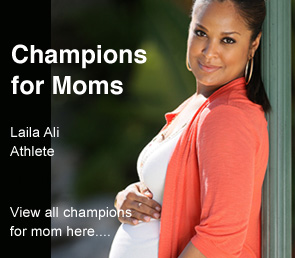
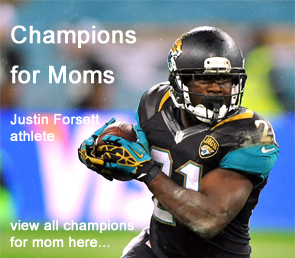
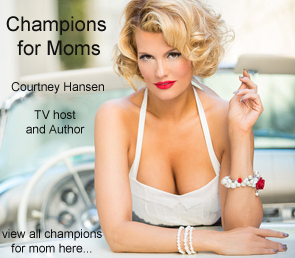

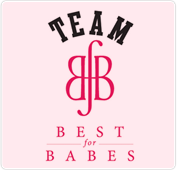

My sister was told the antibiotic she had to take shortly after her delivery (for an infection) was not compatable with breastfeeding but was NEVER FURNISHED A BREASTPUMP to relieve her engorged breasts/protection of her supply. I argued with the nurse asking why she couldn’t walk down the hall for the pump (sister was roomed outside of maternity) or why the doctor would not prescribe a medication that was breastfeeding compatible. I was told “We’ll take good care of your sister” and the nurse hung up. My sister stopped nursing that day. The hospital, nurse & doctor are completely responsible for derailing my vulnerable sister’s nursing experience…
This is a major booby trap, especially how high the percentage of mothers who are taking at least one medication while breastfeeding. Some of the saddest and most frustrating calls I have had as a La Leche League leader are the ones related to prescription medications. By the way, in Canada, mothers can call Motherisk http://www.motherisk.org/women/index.jsp for assistance.
LLL Leaders will also often have access to a copy of Hale’s book, which they can provide a photocopy from for a specific medication. I usually suggest that mothers bring that actual page to the appointment and point out (as pointedly or gently as they see fit) that it’s ironic that they had to hunt down that information when the doctor could purchase the entire manual for about $60 on Amazon. I don’t know that it works, though - as I have yet to meet a family physician or pharmacist who owns a copy! (I’m quite sure there are :)).
Thank you for this wonderful article. Frequently mothers call our center worried that a drug they must take will harm their baby or crying because they have been (usually mistakenly) told to stop breastfeeding so the mother can have needed treatment. They have often been given conflicting advice from everyone they asked, their doctor, pharmacist, friends.
It is rare that breastfeeding must be discontinued and even IF the drug is one that transfers throught the milk and that the baby should NOT receive, THERE ARE OPTIONS. We have helped many mothers maintain their milk by pumping and sometimes (sob!) dumping the milk until the course of treatment is done, then breastfeeding can usually resume.
Thank you for giving the best resources for the accurate, up to date resources about drugs and breastfeeding. We keep learning more all the time. Dr. Hale and the Academy of Breastfeeding medicine are a godsend.
We are sharing your article with everyone!
Jane Bradshaw RN, BSN, IBCLC, RLC
When my youngest was an infant about 3 years ago, I walked into the local CVS pharmacy with my son in my arms to pick up my refill for my medications. The pharmacist found my little white bag and looked in it, then asked me to have a seat. He came back about 5 minutes later and gave me my prescriptions. I noted each and every one of them had big stickers on them saying not to use this medicine if you are breastfeeding. (Not a one of them was contraindicated in breastfeeding!) My albuterol inhaler had a sticker saying do not use if you are breastfeeding. I guess women with lung issues are either supposed to not breathe or not breastfeed!
I had the same issue with both my asthma meds and my domperidone. I am so lucky to have the most amazing pharmacist, she always double checks new meds and if she can’t answer a question for me, she looks it up. She even offered to look up why my domperidone(prescribed for increasing my milk supply) had a do not use while breastfeeding sticker on it and call me at home with the information so that I didn’t have to wait. As far as my asthma meds were concerned I was told there’s a bigger risk for me not taking them then there was taking them while breastfeeding.
Thank you so much for posting this!!
I was induced due to pre-eclampsia when I had my son. I remember after he was born waiting in my new room with my family, eagerly waiting for them to bring my son in. Several hours past and most of my family had left so they could get home in time. I finally asked the nurse where my son was and that I thought babies had to nurse soon after birth (I had let everyone that came in my room know that I planned to breastfeed). She then told me that he was being taken care of and that he already had formula because I can’t breastfeed while on magnesium sulfate (which I was put on during labor & 24 hours after birth). No one told me before hand of this and as such I was unable to nurse my son for his first 24 hours of life (they didn’t offer me a pump to pump and dump either).
I still didn’t want to give up, despite everyone suggesting it to me. I tried and tried to get my son to latch but I couldn’t. He cried and cried wanting the bottle. Even after telling the nurses I STILL planned to breastfeed and wanted the “breastfeeding bag”, they never let me see a lactation consultant and instead gave me the soy formula bag saying “this will be more helpful for you”. I cried. I felt like I had zero support from anyone. But I refused to give up, I wanted to prove them wrong. I spent nearly two months with the routine I thought might work. When my son showed signs of being hungry I would offer the breast until he got to hungry and cried, then I offered my milk in a bottle until he calmed down, then I did the breast again, and it repeated over and over. When I wasn’t trying to get him to nurse I was pumping. Combined with lack of sleep and PPD, I honestly don’t know how I did it.
So you could imagine my surprise, when talking to a lactation consultant several months later… when she said I could have and should have been able to nurse Jude those first 24 hours. I went online and found she was right. The American Academy of Pediatrics considers magnesium sulfate compatible with breastfeeding. To know that I was told I couldn’t and then fought so long with latch problems and bottle preference really really upset me.
Since then I have run into other bumps.
When I went to get the oxytocin for pain relief after I had my son, the pharmacist said I couldn’t take it while nursing (when I could have). So even when in pain I just gritted my teeth and bared it, refusing to take them.
I was told I couldn’t nurse him when I had thrush.
And the best one! When my son was about 10/11 months old I went in the ER because of mastitis. I had it in my right breast. The doctor first told me I could not breastfeed at all. By this time I had learn to ask questions, so I asked him “can I please be put on a medication then that is compatible with breastfeeding?”. He then told me it wasn’t the medication, I just couldn’t breastfeed because of risk of infection. I looked at him and then asked “I don’t understand you and what does that have to do with my other boob?”. He then fumbled with his words and said “oh, well I guess you can nurse on that breast, but not on the other one because if he bites you it could make it worse”. It was probably the worst breastfeeding advice I’ve ever received. Don’t breastfeed if you have mastitis. I called my nearest LLL leader, she was amazed and told me not to listen to him and that the only way to stop mastitis and clogged ducts was to nurse frequently.
So. Long story short. I’m glad you wrote this article!! <3
Forgot to mention. My son will be 26 months old tomorrow, and he still nurses. And although I know it’s coming to an end (he only nurses 2-1 time/s a day), I am so happy I stuck through with it and was able to beat the booby traps.
I’ve never posted here, but I had to tell you how inspirational your story is. THANK YOU for sharing, and you are AMAZING for sticking with it when people seemed determined to sabotage you at every turn!
I agree, you are an amazing mama for persevering through all this!
When my mother had my older brother in 1970, she only breastfed for a month because she diagnosed with pleurisy, an inflammation of the lungs, and they told her to stop because of the antibiotics she was going to take and also this insinuation that because she was sick she couldn’t nurse. I have no idea what antibiotic she was given, but what stands out to me is her docs just assuming that she couldn’t continue to nurse because of her illness and meds. Of course, this was probably really common at that time and my mom didn’t know any better. With me, she did nurse until I didn’t want the breast anymore, but because of social stigma, she made home-made formula to take with her when she was out with me.
I wish I had read this a few weeks ago! I went in to the doctor for a stomach virus. I was basically looking for something to calm my stomach and some fluids. I was given a “GI cocktail” in the office. I asked over and over if it was safe for breastfeeding. I go to the pharmacy to fill the prescription and am told by the pharmacist that the GI cocktail is dangerous for BF and that I have to pump and dump for 30 days!!!!! My twin girls were 11 months. I broke down crying in the pharmacy. How would I ever keep up my supply? I had almost made it to my one year goal and they were not even close to weaning. Luckily I had a good stash of frozen breastmilk and my girls will take a bottle. I pumped and dumped for almost 3 days waiting for one of my other doctors to get back to me on if the advice was valid. My girls had the virus too and all they wanted to do was nurse and it would have been the best for them too. Come to find out I didnt need to pump and dump and all of that was for NOTHING!!! So very very frustrating.
I just started reading the series and went back to start from the begining. That said has anyone mentioned that you can lactmed as an app on android phones?
Great idea for a post - where to find information on medications and breastfeeding if your provider or pharmacist doesn’t have it. Will add to the list!